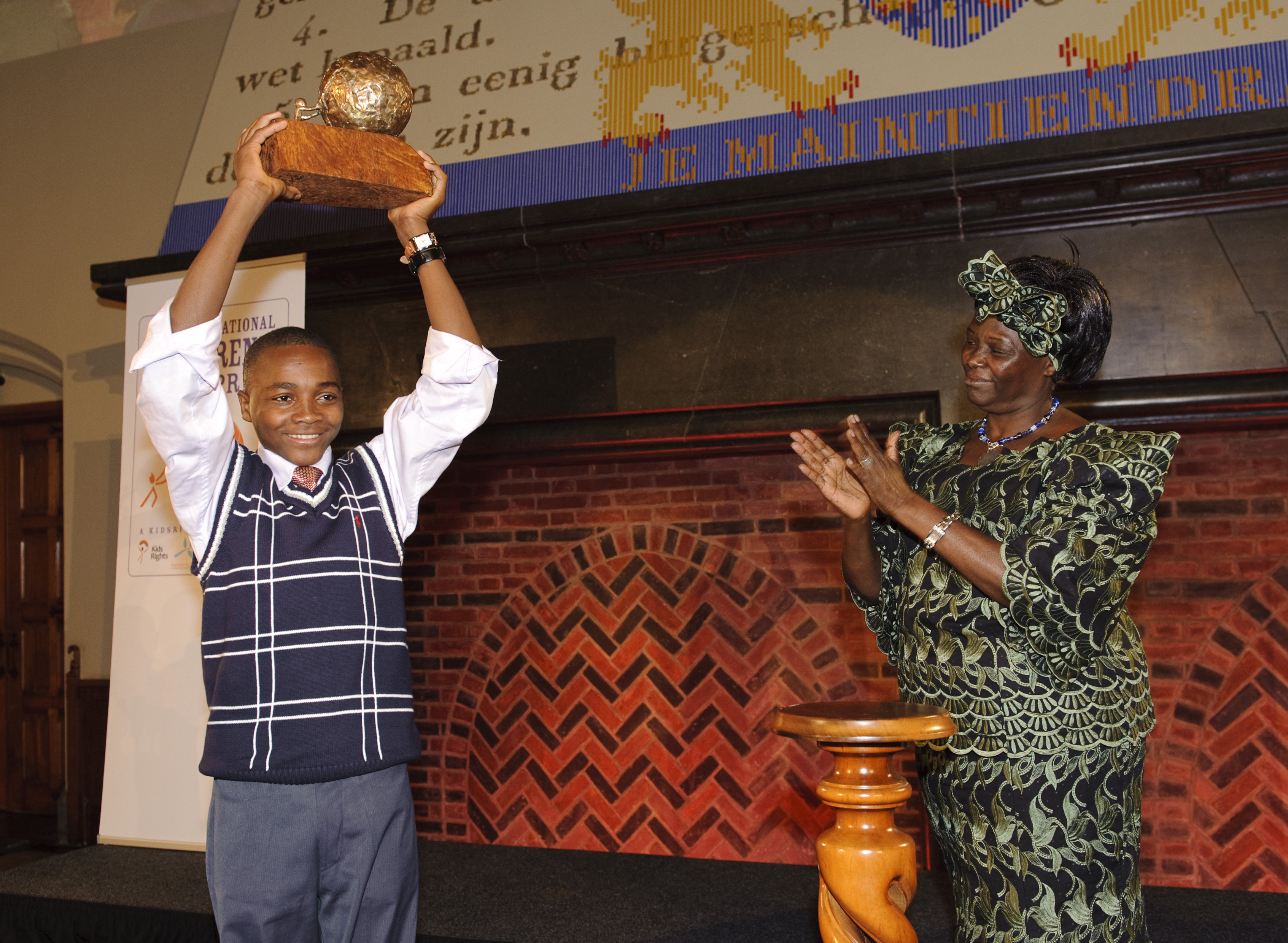Afghan refugees tune in to new UNHCR radio show in Pakistan
Afghan refugees tune in to new UNHCR radio show in Pakistan

QUETTA, Pakistan, Nov 24 (UNHCR) - As the clock ticks toward 3:15 on a Wednesday afternoon, an Afghan refugee tunes a radio in his small grocery shop on the outskirts of Quetta to hear a new UNHCR programme for Afghan refugees.
"Good afternoon. This is Radio Pakistan, and now it's time for the UNHCR-sponsored programme for Afghan refugees. We are your hosts, Nazir Hannawal and Farzana Khan," the male and female voices say on 28-year-old Nazik Mir's radio. He keeps listening to the programme as he steps away to attend to customers.
The 10-minute-long programme, aired twice a week, tells Afghan refugees about the latest developments in Afghanistan, and provides updates on the UNHCR voluntary repatriation programme.
UNHCR is producing the programme with Radio Pakistan to give Afghan refugees the information they need to make a decision on whether to voluntarily repatriate to their country.
More than 2.3 million Afghan refugees have returned home from Pakistan under the UNHCR-facilitated voluntary repatriation programme since early 2002. More than 375,000 have returned in 2004. The voluntary repatriation assistance continues until March 2006 under a tripartite agreement signed between the governments of Pakistan, Afghanistan and UNHCR.
"Our family took refugee in Pakistan during the mid-80s, migrating from Kunduz province of Afghanistan. I was only six years old at that time and have very blurred memories of our ancestral home," said Mir.
"We are eager to have information about Afghanistan, to know more about what is happening there regarding health, education, water, shelter, roads and other things. The UNHCR radio programme is a good initiative, which tries to cover all these aspects," added Mir. "We also keep listening to other news to get all the daily events. Though we are far from our homeland, we are not detached. It's our land and we will return one day."
Mir's other sources of information, as with other Afghan refugees, include close relatives who keep visiting the family in Pakistan. He said his uncle returned to Afghanistan last year after 15 years in exile.
"He also keeps us informed about all the happenings in our village and surroundings. Things are getting better as the presidential elections were held peacefully and there are also employment opportunities. This was the reason that my uncle and other relatives decided to go back last year. We are considering repatriation next year once the winter ends," said Mir.
The radio programme is prepared by a four-member team of Radio Pakistan Quetta, based on material provided by UNHCR. It includes recorded interviews with repatriating refugees, UNHCR staff handling repatriation centres in Pakistan-Afghanistan, and Afghan officials in key positions speaking on key developmental issues.
"This is the first time that we are involved in producing a programme for Afghan refugees. It is a new experience for us. The feedback that we are receiving for this programme from Afghan refugees is very encouraging," said Sohail Jaffar, a senior producer of Radio Pakistan Quetta in charge of the production team.
The radio programme is part of a UNHCR mass information campaign for refugees that also includes compilation of a bi-monthly bulletin in Kabul that is distributed to Afghan refugees in Pakistan and Iran in Afghan languages.
UNHCR earlier this year also established an information centre for Afghan refugees in Quetta to increase their access to factual information about the changing conditions inside Afghanistan.
Kwame Boafo, head of UNHCR sub-office Quetta, said the UN refugee agency was exerting all efforts to help Afghan refugees in making a well-informed decision on repatriation.
"As the repatriation process is voluntary in nature, it is up to the refugees when they think that they can move back to their country. UNHCR on its part tries to provide them with the maximum realistic information about the country of origin," he said.
Boafo praised the help of the Pakistan government in the voluntary repatriation process and the generosity of the people of Pakistan in hosting Afghan refugees for a quarter century.
This month, Sardar Yar Mohammad Rind, Pakistan's federal minister for States and Frontier Regions (SAFRON), told Afghan refugees in Quetta who had decided to repatriate that Pakistan had done all it could to host Afghan refugees with honour and dignity within its limited resources.

He was speaking at a ceremony at UNHCR Quetta's Baleli Iris Verification and Validation Centre to mark the passing of the 120,000 mark in the voluntary repatriation of Afghan refugees from Balochistan province during 2004.
"We will continue to extend all help to UNHCR in the voluntary repatriation of Afghan refugees from Pakistan. I am happy to see Afghan refugees returning to the country of their own will," the Pakistani minister said.
By Babar Baloch
UNHCR Pakistan








